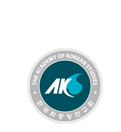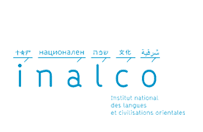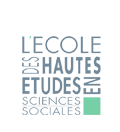En effet, on sait qu’à partir des années 1630, au début de l’ère Edo, le Japon s’est prémuni contre l’influence grandissante des Portugais et des Espagnols en Asie en adoptant une politique isolationniste, appelée Sakoku. Cela a permis au gouvernement des Tokugawa de soustraire l’archipel à la domination occidentale pendant plus de deux siècles. Mais en 1853, les États-Unis ont envoyé des navires de guerre qui ont forcé le pays à s’ouvrir au commerce international et à signer des traités inégaux. Lire la suite sur le site de L’Asie en 1000 mots.
Actualités
Actualités

April 13-15, 2018
■ Theoretical and methodological issues relating to Asian studies.
■ Role of Asia in shaping the global political arena.
■ Social dynamics of contemporary Asia.
■ Contemporary philosophical issues from Asian perspective.
■ Relationship between tradition and Asian modernity.
■ Quest for anthropological perspective in Asian studies.
■ Representations of Asia in the Baltic states: mass media, literature, arts.
■ Asian literature in the West: interpretations and re-interpretations.
■ Variety of Asian arts and visual cultures in historical and contemporary perspective.
■ Dynamics of religious radicalization/universalization of Asia.
■ Asia in searching for new models of religion.
■ Impact of Asia on the Western esotericism.
Korean religions forum will be organized by Centre for Korean Studies during the conference dates. Panels will be participated by a number of scholars distinguished in the field of Korean religion studies and anyone who are interested may freely take part in the discussion and Q&A sessions. The main topics will be: new aspects on Korean aboriginal religions, the history of Korean religiosity, the identity of Korean national religions and the perspective on religion studies in Korea etc.
All presentations should last 20 minutes with 10 minutes for discussion.
Papers are invited in English.
Important dates:
- Submission of session/panel, round-table proposals – December 15, 2017
- Submission of proposals for individual presentations – December 15, 2017
- Notification of acceptance – January 10, 2018
- Early payment of the conference fee – March 13, 2018.
- Late payment of the conference fee – after March 13, 2018.
Please send panel, round-table and individual presentation proposals by December 15st, 2017 to: Marika Laudere dynamicasia@lu.lv
Organizing Committee:
Prof. Janis Priede, Head of Asian Studies Department, University of Latvia
janis.priede.hzf@lu.lv
Prof. Anita Stasulane, Director of the Institute of Humanities and Social Sciences, University of Daugavpils, Latvia
anita.stasulane@du.lv
Asoc. Prof. Agnese Haijima, Head of Centre for the Japanese Studies at the Asian Studies Department, University of Latvia
agnese770@gmail.com
Asoc. Prof. Jinseok Seo, Head of Centre for Korean Studies, University of Latvia
jinseokaslt@gmail.com
Marika Laudere, Secretary of the Conference, Latvian Society for the Studies of Religions
marika.laudere@gmail.com and/or dynamicasia@lu.lv
Click here for the Registration form and the Panel Proposal form.
Contact: Agnese Haijima, Assoc. Prof., University of Latvia, Faculty of Humanities, Department of Asian Studies, tel.+371-20331406
RECRUITMENT PERIOD
If you apply to this recruitment by December 29th, 2017, you will have until January 3rd, 2018 to complete your application.
DESCRIPTION
The Department of Asian Languages & Cultures (http://www.alc.ucla.edu/) at the University of California, Los Angeles (UCLA), invites applications for a position in premodern Korean studies, at the rank of tenure-track assistant professor or tenured associate professor.
This position will begin on July 1, 2018. Priority will be given to those candidates who have research expertise in history or literature of the premodern period and who have a broad knowledge of premodern primary sources and archival materials. Training in comparative, interdisciplinary, and transnational methodologies as well as an ability to work inter-regionally within East and/or South/Southeast Asia are also strongly desirable. The successful candidate will be expected to sustain an active research and publication schedule, teach both undergraduate and graduate courses, provide service to the department and campus, and demonstrate a strong commitment to diversity-related teaching, research, and/or service. Women and minority candidates are especially encouraged to apply.
Applicants are expected to have a PhD in hand by the time of appointment. Salary is commensurate with experience. Applicants should submit cover letter; CV; sample course evaluations; statements of research, teaching, and diversity; a recent writing sample or publication; two sample syllabi (one undergraduate, one graduate); and the name of three references online to UC Recruit. For questions regarding this process, please feel free to contact Professor Namhee Lee, chair of the search committee, at nlee@humnet.ucla.edu.
Review of applications will continue until the position is filled.
The University of California seeks to recruit and retain a diverse workforce as a reflection of our commitment to serve the people of California, to maintain the excellence of the University, and to offer our students richly varied disciplines, perspectives and ways of knowing and learning.
The University of California is an Equal Opportunity/Affirmative Action Employer. All qualified applicants will receive consideration for employment without regard to race, color, religion, sex, sexual orientation, gender identity, national origin, disability, age or protected veteran status. For the complete University of California nondiscrimination and affirmative action policy see the UC Nondiscrimination & Affirmative Action Policy. http://policy.ucop.edu/doc/4000376/NondiscrimAffirmAct
JOB LOCATION
Los Angeles, CA
REQUIREMENTS
DOCUMENTS
- Curriculum Vitae – Your most recently updated C.V.
- Cover Letter
- Statement of Research
- Statement of Teaching
-
Statement of Contributions to Diversity – Statement addressing past and/or potential contributions to diversity through research, teaching, and/or service.
- Two Sample Syllabi – One graduate course and one undergraduate course
- Course Evaluations
- Writing Sample – One recent writing sample or one recent publication
REFERENCES
HOW TO APPLY
- Create an ApplicantID
- Provide required information and documents
- If any, provide required reference information

Date of Deadline: (An Email Receipt Deadline) – Thursday, January 4, 2018 – 5:00pm EST
This application is for those in the field of KOREAN STUDIES only.
The Soon Young Kim Post-Doctoral Fellowship in Korean Studies is open to scholars from all fields of study in Korean Studies. However, preference may be given to scholars working on the history of Korean business, the history of Korean science and technology, the history of Korean military or the environmental history of Korea.
The Fellowship Grant: The fellowship will cover up to a 12-month period between August 1, 2018 and July 31, 2019, and will carry a stipend of $50,000 (with an understanding that the fellowship recipient shall purchase her/his own health insurance.) The recipient will have the option to purchase health insurance from Harvard’s affiliate insurance program should s/he choose. (http://hushp.harvard.edu/rates-plan-dates#Affiliate) The postdoctoral fellow will be provided shared office space and access to the libraries and resources of Harvard University, and will be invited to participate in the academic life of the Korea Institute and appropriate academic department/s.
The Fellow will be required to:
- reside in the Cambridge/Boston area during the appointment and to work on revising his or her dissertation for publication.
- participate actively in related activities of Harvard, the Korea Institute and the Korean Studies community.
- (may) teach or collaborate on one, one-semester class for undergraduates.
- give a public presentation at the Korea Colloquium or Kim Koo Forum seminar series.
Eligibility: Applicants must have received their Ph.D. degree within five years of the postdoctoral appointment year (i.e. in 2013 or later). The applicant who is offered a fellowship must have fully completed all requirements for the Ph.D. degree by July 1, 2018.
Application Deadline: Applications must be received by the Korea Institute by Thursday, January 4, 2018, 5:00pm EST
Applicants may either email one COMPLETE, COLLATED, SINGLE PDF file to <cglover@fas.harvard.edu> or send the complete file via WE TRANSFER (https://www.wetransfer.com/) a free file transfer platform) to <cglover@fas.harvard.edu>. In the Subject line when sending an email, please put KI SYK APP & Applicant Name.
A complete application should consist of all of the following items, in the order listed below:
- Summary sheet: On a separate sheet entitled Soon Young Kim Postdoctoral Fellowship, please provide the following information, re-typing each question in this order:
1. Name & Emails & Phone (First Name, LAST NAME, your Email address(es) & a cell phone number)
2. University & Dept. (of Ph.D.)
3. Field of Study
4. Thesis title
5. Date Ph.D. received (or, if pending, give specific timeline)
6. Names of 2 recommenders
7. Short summary (c. 40 words) of research plan at Harvard; what will you do at Harvard
8. Brief Statement of Teaching Interests
9. Do you have a continuing teaching position? If yes, where? If teaching, have you obtained approval from your dept. to accept a postdoctoral position (if received) for 2018-2019? If no, current affiliation?
10. Have you previously applied for a Harvard postdoctoral fellowship? If yes, when?
11. Are you currently applying for other postdoctoral fellowships? If so, which/where?
12. Have you ever had a Harvard ID previously? If yes, please provide the HUID number. - Cover Letter
- Curriculum vitae (please include *citizenship*, current and permanent addresses, telephone number/s, email address(es); academic degrees with dates of conferral, discipline and institution)
- Dissertation abstract and table of contents (up to 3 pages)
- Plan of research (up to 2 pages)
- Submit a Writing Sample-Include either a Dissertation Chapter in English & less than 40 pages, double-spaced OR a Journal Article in English & Published within the last two years
- One course proposal (for undergraduate students) We particularly welcome course proposals on original topics with innovative teaching approaches.
- Official transcript of grades Please OPEN your official transcript to scan, as part of your complete application.
- Two letters of recommendation The KI will only accept emailed letters of recommendation directly sent by the recommenders by the deadline.
- Please indicate that this letter of recommendation is for the Soon Young Kim Postdoc. Email directly to: <cglover@fas.harvard.edu>
Completed applications should be emailed to Catherine Glover, <cglover@fas.harvard.edu> by the receipt deadline Thursday, January 4, 2018, 5:00pm EST.
This application is for those in the field of KOREAN STUDIES only.
The Korea Institute acknowledges the generous and thoughtful support of Dr. Dong-Won Kim, whose vision for the Soon Young Kim Postdoctoral Fellowship in Korean Studies is to provide the opportunity to advance new scholarly horizons in Korean Studies via research and innovative teaching on original topics.
Harvard is an Affirmative Action/Equal Opportunity Employer. Applications from women and minority candidates are strongly encouraged.
Korea Institute, Harvard University, CGIS South Room S241, 1730 Cambridge Street, Cambridge, MA 02138 USA.

LTI Korea organizes translation workshops at prestigious foreign universities with Korean literature or Korean studies programs to help foster and encourage potential translators of Korean literature. We are now accepting applications to the program for 2018.
- Target Language: All languages
- Number of Recipients: around 7 universities
※ The number of recipients can differ depending on circumstances.
- Eligibility
Universities with faculties who can guide the translation of the Korean short-story or poem into the target language and at least 5 bachelor’s or master’s students with sufficient proficiency in Korean to be able to translate it.
- Grant Details: Faculty fees, Coordinator fees, Running costs
1) Funding to organize a translation workshop in which students meet once a week for 12 weeks to translate a Korean short-story or poem.
2) Funding to invite the author of the story/poem to participate in a 2 ~ 3 day translation session with the participants of the workshop.
※ The University is responsible for planning and organizing the workshop.
※ Workshop scheduled for the first half of 2018 will be given preference.
- Grant Amount
1) Around USD 6,000 to cover faculty and coordinator fees, and running costs. The exact amount will be decided after application review.
2) Additional subsidy for the writer’s honorarium, airfare, and hotel charges.
3) Applications can be made in the local currency.
- Required Documents
1) An official application form, in either Korean or English, containing detailed information about the desired grant amount, the workhop’s schedule, the overseeing department, participating students, the writer, and the story to be translated.
2) Resumes and personal statements of the participating faculties in either Korean or English(no set format).
※ The text should be by a living writer, but must not have been previously translated in the target language.
※ Submitted documents will not be returned.
- Selection Criteria
1) The applying university’s ability to organize workshop for Korean literature: the facultie’s experience in translating Korean literature and Korean language proficiency of the students.
2) The Applying university’s interest towards Korean literature and the ability to carry out the workshop enthusiastically.
- How to Apply: Application should be emailed to academy@klti.or.kr
- Application Deadline: December 31 (Sun), 2017 (Korean standard time)
- Notification: Mid January 2018

 Pour les chercheurs et les étudiants qui s’intéressent à l’histoire du colonialisme et au phénomène du racisme, le cas du Japon est original et éclairant. D’abord, c’est un des seuls, sinon le seul pays non européen qui ait vraiment échappé à la domination impériale de l’Occident. Ensuite, on peut dire qu’il s’agit du seul pays non européen qui ait constitué son propre empire colonial sur le modèle des grandes puissances de l’époque. Cette histoire unique doit absolument être prise en compte lorsque l’on tente de comprendre la position et le statut des Coréens dans la société japonaise contemporaine.
Pour les chercheurs et les étudiants qui s’intéressent à l’histoire du colonialisme et au phénomène du racisme, le cas du Japon est original et éclairant. D’abord, c’est un des seuls, sinon le seul pays non européen qui ait vraiment échappé à la domination impériale de l’Occident. Ensuite, on peut dire qu’il s’agit du seul pays non européen qui ait constitué son propre empire colonial sur le modèle des grandes puissances de l’époque. Cette histoire unique doit absolument être prise en compte lorsque l’on tente de comprendre la position et le statut des Coréens dans la société japonaise contemporaine.
Pages







